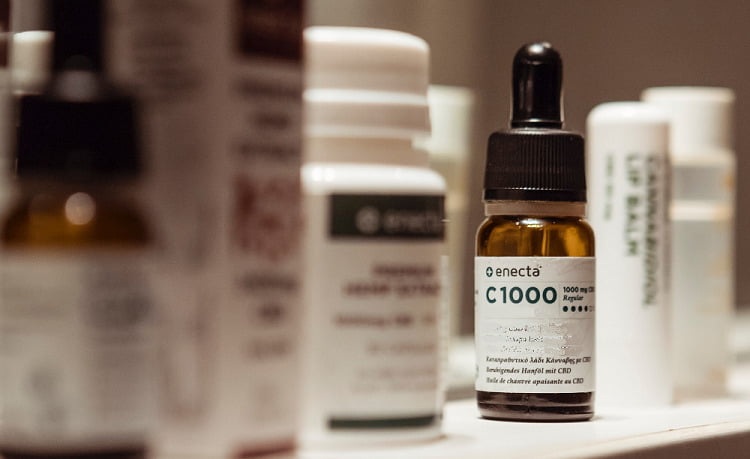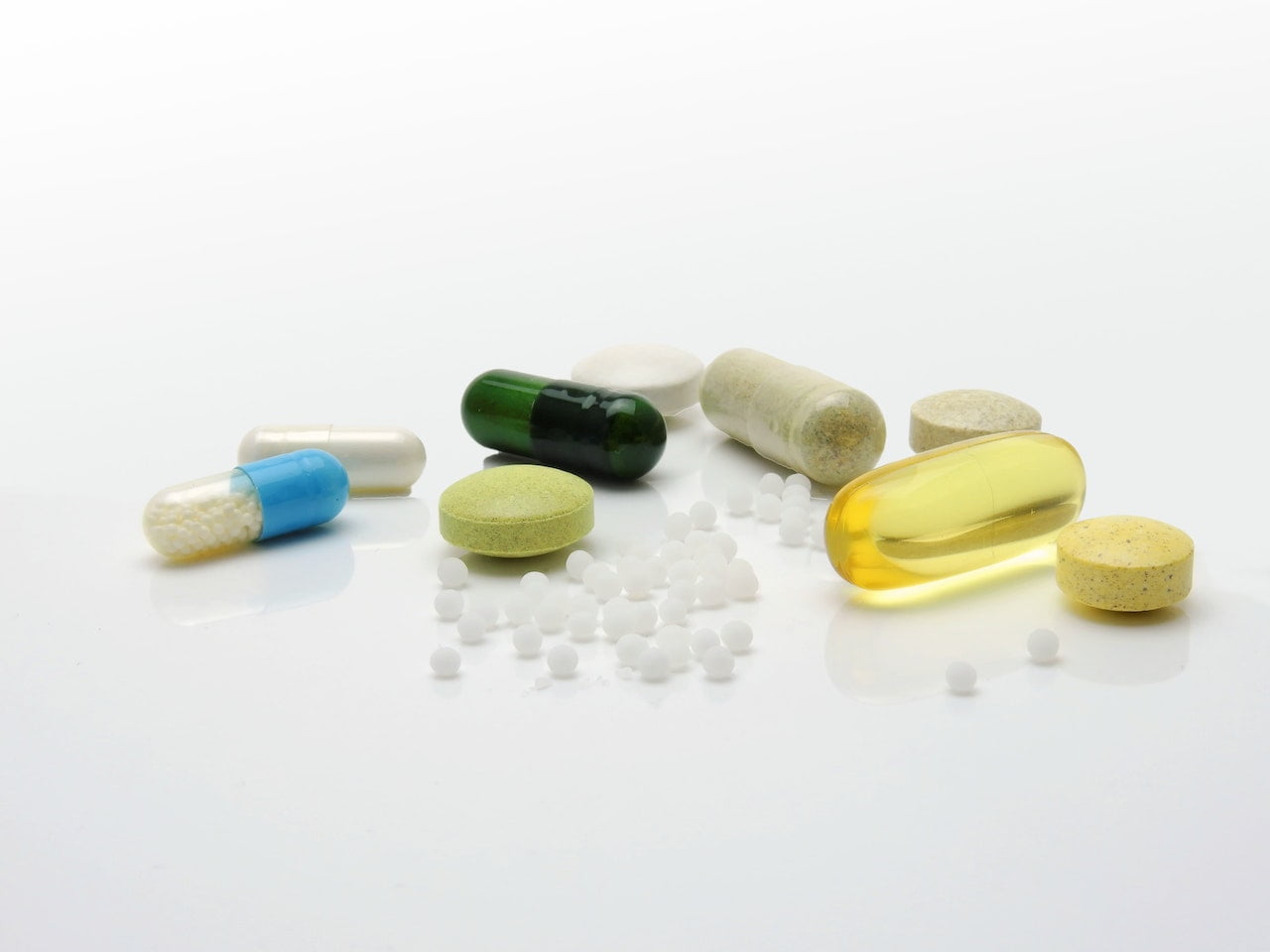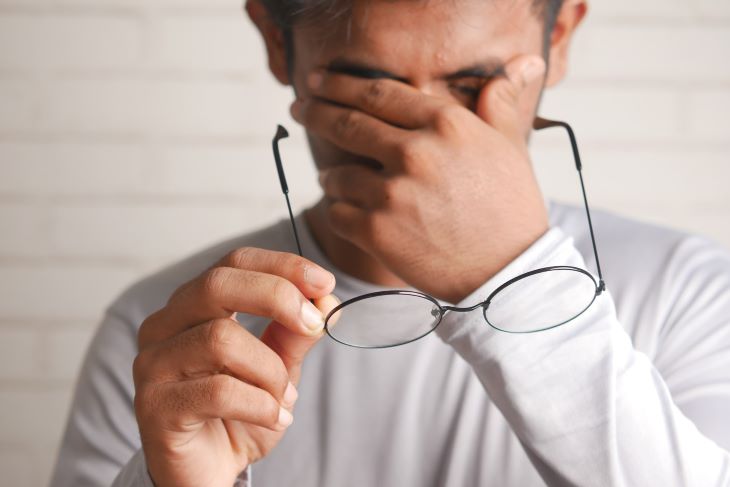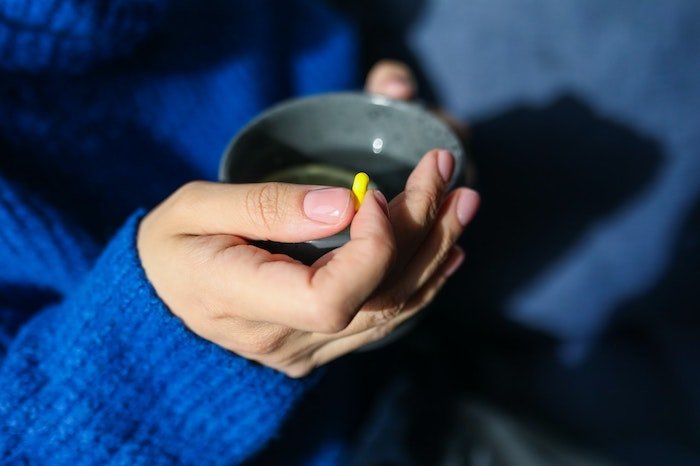The first stage in the detoxification (detox) process from Meperidine involves medical practitioners conducting a detailed assessment on someone’s current use and the level of the drug present in their body.
Factors such as level and duration of drug use, age, gender, physical and mental health all need to be taken into account before formulating an overall treatment plan of which the detox process is only one aspect of.
Meperidine Detox – Treatment Process

There are three stages that have been identified in helping people recover from any opioid dependence, although not everyone will pass through the three stages.
The first stage involves stabilising the patient and ensuring that their withdrawal symptoms are controlled by providing them with a substitute drug that controls their withdrawal symptoms. (10)
The second stage is the detoxification process whereby the doses of the substitute drug are gradually reduced over a period of months in order to remove all traces of Meperidine from the body.
The final stage involves providing patients with the skills and knowledge to avoid relapsing and can involve counselling, improving social skills and helping them building meaningful connections in their local community. (10)
Meperidine Detox – Established Treatments

Many leading advisory healthcare organisations throughout the world recommend Methadone and Buprenorphine as reliable and effective treatments for those patients seeking to detox from an opioid based drug. (9,11)
At OK Rehab, we offer free advice from a team of non-judgemental professionals, many of whom are in recovery and understand how hard it can be to change your relationship with addiction.
To find out more about Meperidine detox, simply reach out to our 24/7, confidential hotline on 0800 326 5559.
Methadone
Methadone has been an established treatment for opioid dependence for several decades, it can be used in a detox approach where patients receive incrementally reduced doses over a period of time to remove all presence of the opioid from the body.
It can also be used as a maintenance treatment where the same dose size is given to patients daily for a period of several months if not years to stave off withdrawal symptoms. (8,12)
Methadone is a drug created by medical researchers as opposed to being a natural drug, therefore it is known as a synthetic opioid.
It is an effective treatment for detox from any opioid drug because it tends to possess a significantly longer half life than any opioid that people have become physically dependent on like Meperidine. (12)
Methadone is a long acting substitute drug

This means it is a longer lasting drug and one dose of it tends to be enough to keep withdrawal symptoms at bay for around 24 hours, which is much longer than Meperidine was able to achieve.
Therefore, when going through Meperidine detox, patients will only be required to take Methadone once a day which will help to stabilise them, and provide them with an element of predictability in their recovery from physical dependence on the substance. (1,6,8)
An important function for Methadone is to satisfy the withdrawal symptoms someone has been experiencing with the lowest possible dose, as it is important to slowly reduce the amount of Meperidine in the body.
Finding the right dose level
It is common practice for doctors to commence the detox treatment with an amount somewhere between 10mg and 30mg to identify whether this satisfies withdrawal symptoms.
If this does not help the person to keep the withdrawal symptoms at bay then doctors will slowly increase the dose until withdrawal symptoms have been eradicated. This will then be their starting dose. (2,7)
The doses given to each person have been specifically worked out based on the patients’ individual information from their medical assessment and various tests (e.g blood and urine) designed to assess their level of physical dependence on Meperidine.
Meperidine detox schedule

Therefore it is vitally important that people adhere to the detox schedule provided by their medical practitioner as any deviation from their treatment plan can disrupt their progress.
If someone hasn’t stuck to their detox schedule then they should contact members their medical practitioner immediately who will assess whether any modifications need to be made to their detox treatment schedule. (8a)
It is common practice for patients to visit a pharmacy on a daily basis to take the Methadone (which is taken in liquid form) in the early stages of treatment if they are an outpatient so they can be monitored and observed consuming the dose. (8,8a)
They can select a convenient pharmacy to visit with the prescription written by a doctor and build this into their regular daily schedule.
At OK Rehab, we offer free advice from a team of non-judgemental professionals, many of whom are in recovery and understand how hard it can be to change your relationship with addiction.
To find out more about Meperidine detox, simply reach out to our 24/7, confidential hotline on 0800 326 5559.
Buprenorphine

Buprenorphine is another highly recommended treatment used as a substitute drug for the detox process from any opioid drug.
It is also a long acting drug and is only required to be taken once a day, which is enough to prevent patients from experiencing any withdrawal symptoms.
Additionally like Methadone it will not generate any feelings of euphoria in patients and so helps to reduce the level of psychological dependence. (8,12)
This substitute drug is not consumed in liquid form like Methadone but placed under the tongue to be gradually absorbed into the human body.
Buprenorphine is only a partial opioid agonist, which means its chemical properties do not fully connect to the opioid receptors in the brain, so it has less of an effect on the brain and body than full opioid agonists like Meperidine.
Benefits of Buprenorphine

Buprenorphine possesses a couple of advantages over Methadone.
Firstly, it tends to generate less intense withdrawal symptoms when coming off the drug, and secondly it is considered a safer substitute drug as it lessens the risk of an overdose.
This is because when taken, even though it is only a partial agonist it is still able to connect to opioid receptors in the brain firmly enough to prevent Meperidine from taking effect if someone relapses. (3,7,12)
If Buprenorphine is consumed in larger amounts then it begins to act as an opioid antagonist, this means it possesses chemicals that will prevent any other opioid drug taken afterwards from having any effect at all.
Therefore if Meperidine is consumed people would not experience feelings of euphoria and relaxation and therefore lose a key motivation for taking the drug. (12)
Buprenorphine also has the added advantage of not reducing the respiratory mechanisms in the human body as much as other opioid drugs. (3,12)
At OK Rehab, we offer free advice from a team of non-judgemental professionals, many of whom are in recovery and understand how hard it can be to change your relationship with addiction.
To find out more about Meperidine detox, simply reach out to our 24/7, confidential hotline on 0800 326 5559.
Naltrexone

Naltrexone is another treatment option to consider when detoxing from Meperidine.
However, it must be stressed that in order to be considered a suitable candidate to receive this drug, patients must show evidence that there are no signs of Meperidine present in their bodies.
This is more likely therefore, to be used to as an option to help with relapse prevention for people who have successfully completed the physical detox procedure and have demonstrated to medical staff that their motivation to recover is high. (8,12)
Naltrexone is an opioid antagonist, which means it contains properties that link to opioid receptors in the brain but do not activate the neuron to perform any effect.
Because it attaches to opioid receptors it prevents any other opioids like Meperidine from attaching to receptors, so if Meperidine is taken it will not be able to exert its usual effects as Naltrexone has blocked them from functioning.(7,12)
Unpleasant withdrawal symptoms

It has been reported by healthcare professionals that many patients attempting to give up consuming any opioid drug like Meperidine state that the main obstacle they encounter when trying to overcome their opioid dependence is their anticipated fear of the highly unpleasant withdrawal symptoms they will experience. (10)
Avoiding withdrawal in fact has been cited as the main reason for continuing use of the drug so healthcare professionals should recognise this as a serious barrier to commencing treatment rather than something people just have to deal with.
There is a great deal of variation in the severity of withdrawal symptoms experienced by people attempting to withdraw from any opioid like Meperidine. (10)
At OK Rehab, we offer free advice from a team of non-judgemental professionals, many of whom are in recovery and understand how hard it can be to change your relationship with addiction.
To find out more about Meperidine detox, simply reach out to our 24/7, confidential hotline on 0800 326 5559.
Lofexidine

Lofexidine is a drug that can be offered to help people deal with these unpleasant withdrawal symptoms as it tends to reduce the intensity of the withdrawal symptoms that people experience and helps to decrease cravings during the early period of withdrawal from the drug. (2,10)
Lofexidine has been seen to be very effective although it does not alleviate all of the possible withdrawal symptoms synonymous with opioid withdrawal as they can be far ranging.
It is possible to attempt to withdraw from an opioid without going through detox and only using Lofexdine to control the withdrawal symptoms.
However, this is not likely to be the case for everyone, so a full assessment will be required to identify candidates who are suitable to only take Lofexidine when attempting to come of the drug. (2,10)
Meperidine Detox – a supportive environment

Because recovering from any opioid dependence is a long term condition with a great potential for relapse, substance misuse practitioners strongly advise anyone attempting detox ensures that they have a solid, supportive, stress free home environment to offer them the best chance of recovery.
It is essential that they are relaxed, receive regular meals and obtain a good quality of sleep, so they stand the best chance of successfully completing detox.
If a person does not receive enough support during this time it could significantly hamper their progress. (12)
The role of psychosocial factors in rehabilitation
The final stage of the treatment process is the rehabilitation stage where patients are provided with various psychosocial skills to ensure they get on with their lives and avoid relapsing. Relapse prevention utilises psychosocial areas to help people sustain their recovery.
Relapse prevention plays a key role in ensuring patients maintain their psychological rehabilitation after they have been through detox treatment. This is important as any form of Opioid Use Disorder (OUD) is recognised as a chronic lapsing condition. (6,12)
Meperidine Detox – identifying high risk situations

An important part of any approach to relapse prevention involves identifying potential high risk situations patients may encounter that may lead to them relapsing.
Such high risk situations could involve hanging out in a certain location with a particular group of people, or interactions with family members that tend to lead arguments.
A person will be more vulnerable to relapsing if he / she is in a stressed, emotional state, this is when well established automatic psychological processes could lead to the person using a substance to cope with the stress they are experiencing.
They are also more likely to relapse if they visit regular locations that are associated with their drug use.
At OK Rehab, we offer free advice from a team of non-judgemental professionals, many of whom are in recovery and understand how hard it can be to change your relationship with addiction.
To find out more about Meperidine detox, simply reach out to our 24/7, confidential hotline on 0800 326 5559.
Meperidine Detox – developing cognitive skills

It is vital to engage in regular sessions with a counsellor to talk about these concerns and together you can come up with solutions to help manage challenging situations more effectively.
This can be achieved by developing new cognitive coping skills which will enable them to resist using substances and take a different course of action instead when encountering stressful situations.
Managing emotions and thoughts more effectively will prove to be an effective tool for people to move forward without relapsing. (4,8)
Mindfulness is an example of a new cognitive skill a person can utilise to help them switch off from intense, negative thoughts and focus on the present moment and achieve a calmer state of mind.
This will allow them to distance themselves from the usual automatic negative reactions they have that may lead to them relapsing. (4,8)
It is also important for people to work on developing good relationships with others and to build meaningful connections to different parts of their community.
Additionally, it is beneficial to work with a therapist to think about re-establishing personal boundaries, becoming more assertive and which friends they may need to cut out of their lives. (12)
Meperidine Detox – improving self-efficacy

Working with a counsellor can help people to improve their confidence and self -efficacy. Self-efficacy refers to a person’s own belief that they can sustain their recovery and not relapse.
Patients with a low self efficacy about their ability to refrain from substance misuse are more likely to end up relapsing. It is important for people to realise that they have the ability to take control and eliminate drugs from their lives. (4)
At OK Rehab, we offer free advice from a team of non-judgemental professionals, many of whom are in recovery and understand how hard it can be to change your relationship with addiction.
To find out more about Meperidine detox, simply reach out to our 24/7, confidential hotline on 0800 326 5559.
Meperidine Detox – References
(1) Buttner, B, (2014) The Neuropathology of Drug Abuse in Madras, B. & Kuhar, M. (ed) The Effects of drug abuse on the human nervous system. Academic Press. London
(2) Essex Partnership University NHS Foundation Trust (2017) Management of Alcohol, Opioid and Benzodiazepine Dependence
available online@Section-10-Management-of-Alcohol-Opioid-and-Benzodiazepine-Dependence-updated-Dec-2017.pdf (eput.nhs.uk)
(3) Hopkins University Medicine (2021) Opioid Addiction
available online @ Treating Opioid Addiction (hopkinsmedicine.org)
(4) Marlatt, A. Bowen, S., Witkiewitz, K. (2009) Relapse Prevention: Evidence Base and Future Directions in Miller, P. (ed) Evidence Based Addiction Treatment. Academic Press. New York
(5) McBride, A. (2003) Some Drugs of Misuse in Peterson, T. & McBride, A. (ed) Working with Substance Misusers: A Guide to Theory and Practice London. Routledge.
(6) McNally, H. (2018) Opioid Dependence: A Clinical and Epidemiologic approach. Springer. USA
(7) Merrill, J. (2003) Medical Approaches and Prescribing: Drugs. in Peterson, T. & McBride, A. (ed) Working with Substance Misusers: A Guide to Theory and Practice London. Routledge.
(8) Moss, A, Dyer, K (2010) The Psychology of Addictive Behaviour. Palgrave McMillan. New York
(8a) National Health Service (2021) Methadone: Medicine to treat Heroine Dependence
available online@Methadone – medicine used to treat heroin dependence – NHS (www.nhs.uk)
(9) National Institute for Health and Care Excellence (NICE) (2007) Drug Misuse in Over 16s: Opioid Detoxification
(10)Pergolizzi, J., Annabi, H., Gharibo, C., LeQuang, J.A. (2019) The Role of Lofexidine in Management of Opioid Withdrawal. Pain and Therapy. June 8(1) p67-78
available online@The Role of Lofexidine in Management of Opioid Withdrawal (nih.gov)
(11) World Health Organisation (2021) Opioid Overdose
available online@Opioid overdose (who.int)
(12) Yoon, R. (2014)Opioid Addiction In Herie, M. & Skinner, W. (ed) Fundamentals of Addiction: A Practical Guide for Counsellors. CAMH. Canada






